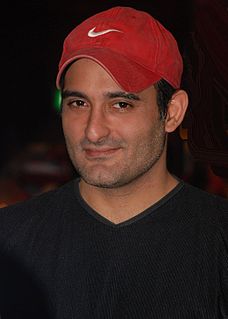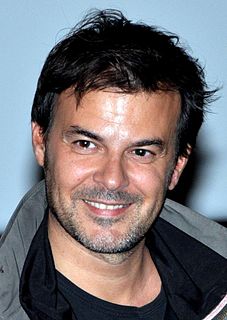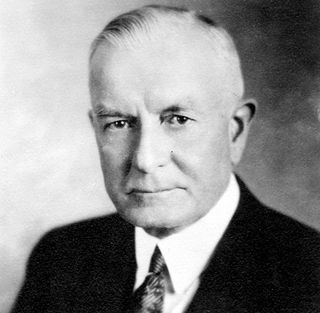A Quote by Akshaye Khanna
My first film was a failure. I had many failures too. It's not easy dealing with it.
Related Quotes
Failure's relative. I've always felt, even early on, if I lose the freedom to fail, something's not right about that. It's how you treat failure, too. There's something to learn from it. I've had movies that have failed colossally, so you kind of analyze your failures: What kind of failure was it? A failure because it's misunderstood by others? A failure because you misunderstood it yourself?
U.S. failures when it comes to the Gulf of Guinea are many: a failure to address the longstanding concerns of a government watchdog agency, a failure to effectively combat piracy despite an outlay of tens of millions of taxpayer dollars, and a failure to confront corrupt African leaders who enable piracy in the first place.
My first book, 'To Engineer Is Human,' was prompted by nonengineer friends asking me why so many technological accidents and failures were occurring. If engineers knew what they were doing, why did bridges and buildings fall down? It was a question that I had often asked myself, and I had no easy answer.
The first idea of Young and Beautiful was to have a young boy and to explore the sexuality of boys. But, I realized, with a boy doing prostitution, of course it has to deal with homosexuality. And I had a feeling it was too much for the film, you know, sexuality, prostitution, adolescence ... there were too many films for one film.
Many politicians and pundits claim that the credit crunch and high mortgage foreclosure rate is an example of market failure and want government to step in to bail out creditors and borrowers at the expense of taxpayers who prudently managed their affairs. These financial problems are not market failures but government failure. ... The credit crunch and foreclosure problems are failures of government policy.
If success were easy, then it would not necessarily be true success. Some of history's most successful people learned to cope with failure as a natural offshoot of the experimental and creative process and often learned more from their failures than their successes. By taking the attitude that failure is merely a detour on the way to our destination, hope can blossom into success.



































